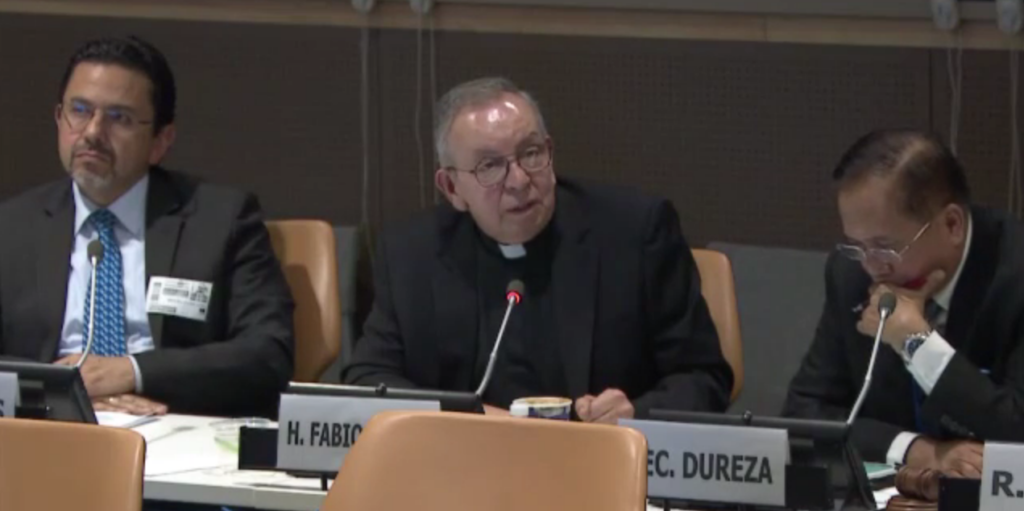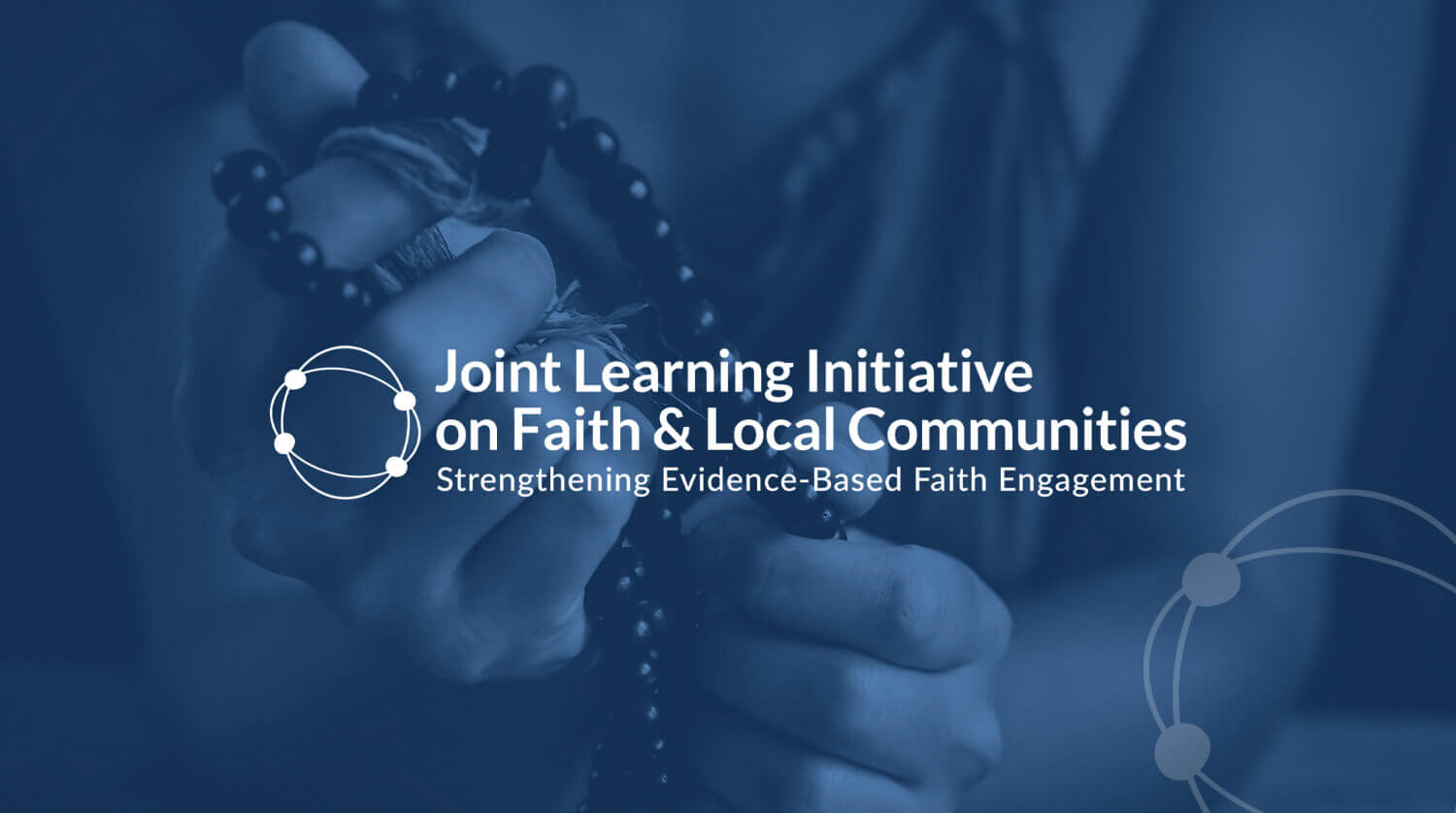The Role of Religion and Faith-Based Organizations in International Affairs
Just, Inclusive and Sustainable Peace
On Monday, 23 January 2017 at the United Nations Secretariat the General Board of Church and Society of The United Methodist Church, General Conference of Seventh-Day Adventists and the World Council of Churches (WCC) organized the third annual Symposium.
The United Nations Office on Genocide Prevention and the Responsibility to Protect, United Nations Inter-Agency Task Force for Engagement with Faith-based Organizations and The Committee of Religious NGOs at the United Nations co-sponsored the event.

Panel on Current Status of Peace: Philippines and Colombia-Panelists included Dr. Miguel Ceballos Arévalo (left) and Monsignor Hector Fabio Henao and Secretary Jesus Dureza (right)
Morning Session Summary-Anatomy and Scope of Peace Panel and Religions and Peace Panel Mr. Rudelmar de Faria opened the morning session. Mr. Adama Dieng also gave a welcome message by video, quoting Secretary General Gutteres that conflict prevention is not a priority but the priority in managing conflict and sustaining peace. He emphasized better integration, provide support, need to work with FBOs and announced the Plan of Action on the role of religious leaders and actions in prevention of atrocities and violence will be released this year. Rev. Dr. Susan Henry-Crowe followed speaking on how the bible makes justice the inseparable companion of peace and discussed the interrelatedness of the values woven into the UN pillars. Anatomy and Scope of Peace Panel Moderated by Dr Azza Karam, Senior Advisor on Culture, UNFPA and Coordinator, UN Inter-Agency Task Force for Engagement with Faith-based Organizations Dr. Ganoune Diop spoke on a global vision of peace as an enduring value. He spoke about deconstructing nationalist ideologies, need for partnership and collaboration for peace. H.E. Mr. Pekka Metso said that we could not deny the role of religion in shaping the world of foreign policy. He emphasized the need for mediation mentioning the Group of Friends of Mediation and that women were the single under-utilized resource in effective peacebuilding. Ms. Joyce S. Dubensky introduced the Tanenbaum Center for Interreligious Understanding highlighting the Peacemakers in Action Network. Religions and Peace Panel Moderated by Dr Azza Karam Mr. Akinremi Bolaji spoke on the reconciliatory role of religious organizations. Ms. Aisha H.L. al-Adawiya discussed the transmission of trauma and healing and emphasized the need to change vocabulary and media framing of words so as not to create marginalized people. Mr. Mohamed Elsanousi emphasized four key issues for engaging religious actors- ownership of process, partnership, inclusivity and patience in the process. Prof. Mohammed Abu-Nimer introduced the KAICIID Centre programs including religious literacy training. He gave two key challenges on working with religious institutions as how do we immunize the public to prevent easy manipulation of religion and how do we bring constructive voices of religion into policy. Mr. Ulrich Nitschke presented on the International Partnership on Religion & Sustainable Development (PaRD) and its work streams. Afternoon Session- Just and Sustainable Peace and Panel on Current Status of Peace: Philippines and Colombia Moderated by Rev. Liberato Bautista, Assistant General Secretary–UN and International Affairs & Main UN Representative, General Board of Church and Society of The United Methodist Church, and President, Committee of Religious NGOs at the United Nations Mr. Thomas Gass spoke on the SDGs as a framework for peace, duty bearers, rights holders, who we leave behind, reducing inequality and inclusivity. Mr. Andrew Tomlinson discussed accompaniment, especially locally and a guidebook on Pathfinders for Peaceful, Just and Inclusive Societies based on the SDGs. Mr. Rudelmar Bueno de Faria gave a presentation on the WCC’s Ecumenical Framework for Peace (click link for presentation). Dr. Jeffrey Haynes presented the political considerations in peace and the role of FBOs (click link for presentation). Moderated by Rev. Liberato Bautista who remarked that at the table of Peace shall be bread and justice. Secretary Jesus Dureza and Rev. Rex R.B. Reyes, Jr. introduced a case study on the Philippines peace process. Dr. Miguel Ceballos Arévalo and Monsignor Hector Fabio Henao presented a case study from Colombia. H.E. Geir O. Pedersen discussed the Norwegian role in facilitating peace processes. Panel on Current Status of Peace: Philippines and Colombia






